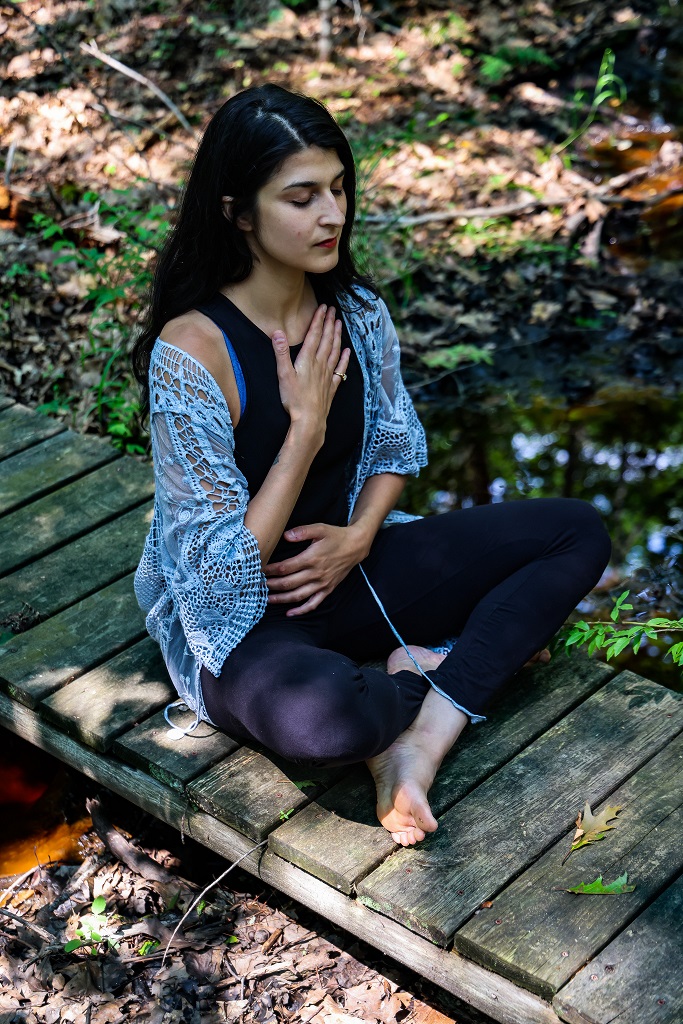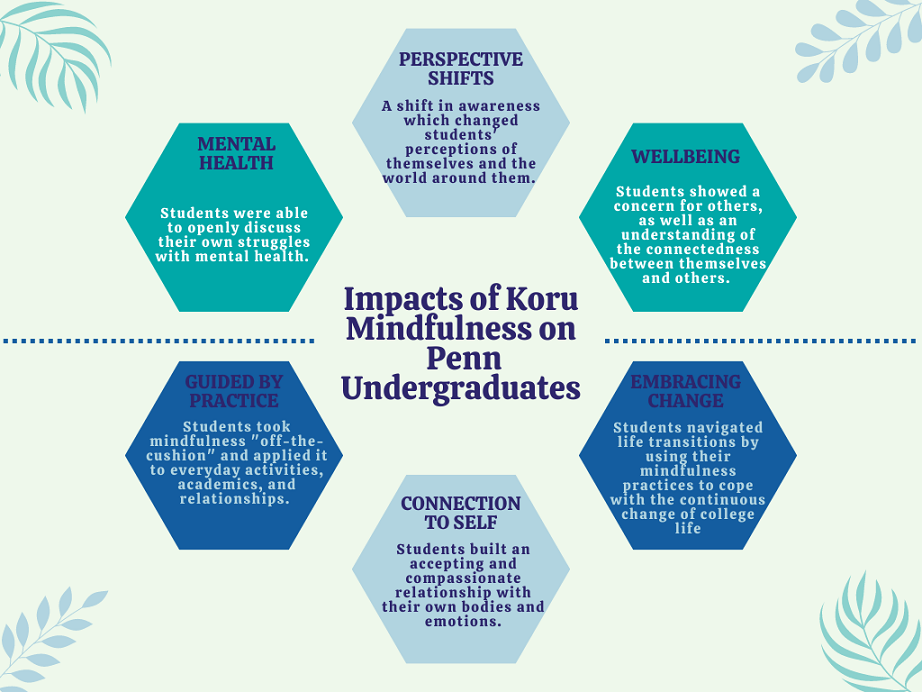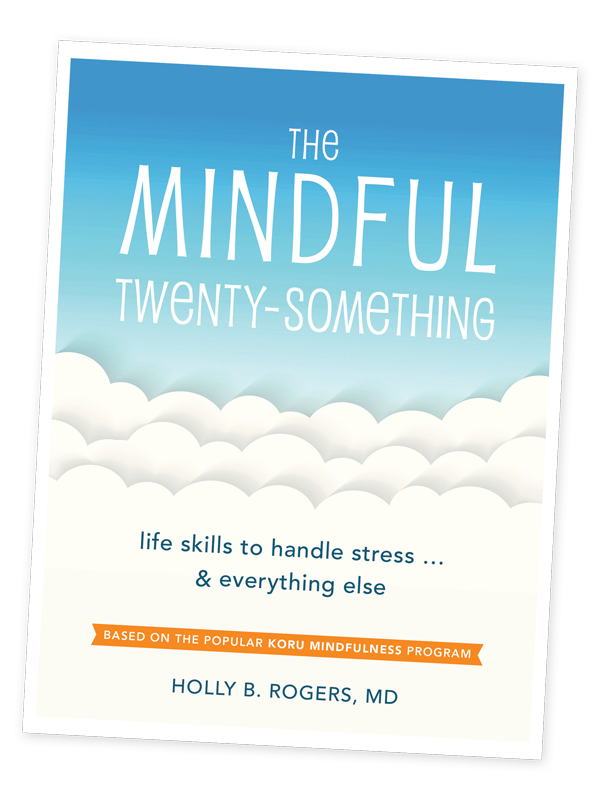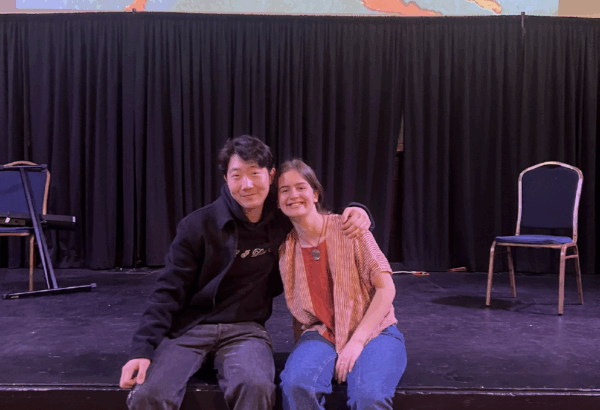
Mindfulness and Body-Based Practices in a College Classroom
One such opportunity is the SNF Paideia designated class, EDUC 251: Mindfulness & Human Development, taught by Dr. Elizabeth Mackenzie. In this class, Penn undergrads spend four weeks out of the semester-long class learning Koru Mindfulness techniques. These techniques include some metacognitive exercises, like labeling emotions, and body-based practices, like the body scan. I interviewed fifteen students from EDUC 251 for my master’s thesis, to understand how learning Koru Mindfulness as a part of a for-credit class, impacted their abilities to cope with the stress of emerging adulthood at Penn.

Students referenced using the body-based techniques, like the body scan and belly breathing, to anchor themselves amidst change, connect to their own bodies, and manage career and academic stress. One student became better at intuiting when she needed to stretch. She would keep her yoga mat rolled up on the floor, to make it easier to take a stretch break when she needed it. Several students credited the body scan in discovering tension patterns in their muscles. The body scan helped one student with a physical disability, whose chronic leg pain hindered her connection to her body, stating that, “I wouldn’t say that the body scan relieved the pain, but I think it just made me feel a lot more connected to my body. I’ve just developed a new mindset about, like, my physical presence in the world which I’d say has definitely been a positive change” (focus group participant, April 8, 2022).
Another student shared the way she integrated body-based techniques into a stressful class presentation, stating, “I hate giving presentations but one day in one of my classes [we had] to give a presentation about a paper [that] we read. I was getting kind of nervous, because it was [my turn] to go and I realized that, like my breathing was really quick, [so] I took two seconds to breathe and feel [my] body and do kind of a quick body scan.” (focus group participant, April 8, 2021). The student went on to add that it was the best presentation she had ever given! In addition to helping students manage academic and career anxiety, many students referenced the body scan meditation as helpful for falling asleep.

Potential Impact for Integrating Embodied Practices in Higher Education
While some students may have physical practices like running or yoga, these tend to happen outside of academia. By integrating embodied practices into the classroom, as EDUC 251 does, students are encouraged to discuss how their bodies feel within academia. Of the students interviewed, many wondered what could happen if more academic classes incorporated mind-body practices into the curriculum. How would students’ mental health be impacted? Could students enjoy healthier sleep habits or set clearer boundaries around schoolwork?
I encourage you to reflect on your own embodied experience in the classroom space. Do you feel literate or competent in your body’s sensations, reactions, and messages? If so, what do you notice? How do you regulate bodily symptoms of stress, tension or anxiety that may show up in academic spaces? If we begin to ask these questions of folks in academia, perhaps we can become more comfortable acknowledging the inevitability of our bodies and the ways that we might support the embodied experience within the classroom.

For more information on Koru Mindfulness, visit https://korumindfulness.org/. To see more of my work, visit my website at https://embodyingcalm.com/. To read my full Master’s thesis, click here.




